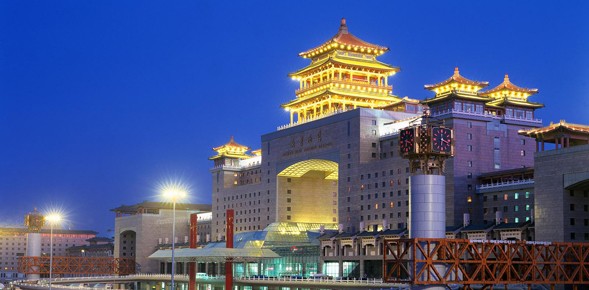Destinations see more self-organised travellers replacing package tour groups.
BEIJING – Destinations around the world have reported lower arrival numbers for Chinese visitors in the weeks following the introduction of the new Chinese tourism law. Many Chinese outbound tour operators raised their prices especially for their cheapest products as once again they have to pay their tour guides.
The new Chinese tourism law, which came into effect on October 1st, 2013, rules out the common practices of forced shopping or involuntary payments for activities outside fixed itineraries for Chinese package tours. Under this business model, tour operators would not only save on the cost of paying tour guides but would often even receive money from the tour guides for the right to earn commissions from the tourists’ shopping and sightseeing.
Taiwan reported only two third of last year’s number of arrivals for the month of October 2013, but already saw a return to normalcy in the first half of November. New Zealand registered a decrease of monthly arrival numbers from China for the first time in since 2010. The 12% blow was however softened by the fact that the average length of stay increased at the same time. South Korea also suffered a setback of about 20% during the Golden Week period, the first week of October, for which it blamed the new Chinese tourism law. In July the South Korean capital Seoul has however already introduced a certification programme for inbound tour programmes to shield Chinese visitors from fraudulent practices such as forced shopping.
In all three destinations the tourism officials recognised that the decrease in package tour arrivals was partly compensated by increases in self-organised travellers, who on average spend more and stay longer in the country.
Prof. Dr. Wolfgang Georg Arlt, editor of the C.O.M.I. China Outbound Market Intelligence magazine, sees his analysis vindicated. He says: “In the current issue of C.O.M.I. we argue that higher prices for organised tours will reduce the price difference between a package tour and a self-organised trip, increasing the appeal for Chinese outbound travelers to venture outside of their neighbourhood on their own. The tourism law will therefore bolster the already growing segment of the self-organised travellers and will also make this kind of travel organisation more attractive for less affluent travelers. The first experiences of the new tourism law point to this trend.” Prof. Dr. Arlt however also mentioned that the market for cheap outbound trips has not disappeared. “There is a long queue of Chinese who want to spend as little money as possible to be able to say after the trip that they also have been abroad. They do not mind much about the quality of the trip and they certainly want to do some shopping on the way.”
So with customers complaining about higher prices and tour guides reported to be ignoring even the most explicit wishes of tour members to visit shopping centres, the brouhaha about the new regulations is likely to die down in the coming months and to be supplanted by new ways of catering both for the growing self-organised travel market and the price-sensitive package group tourists from China.
Theodore is the Co-Founder and Managing Editor of TravelDailyNews Media Network; his responsibilities include business development and planning for TravelDailyNews long-term opportunities.




![[PR] PR_Ascott and Vimut Hospital_2024](https://www.traveldailynews.asia/wp-content/uploads/2024/04/PR-PR_Ascott-and-Vimut-Hospital_2024-400x265.jpg)





























































